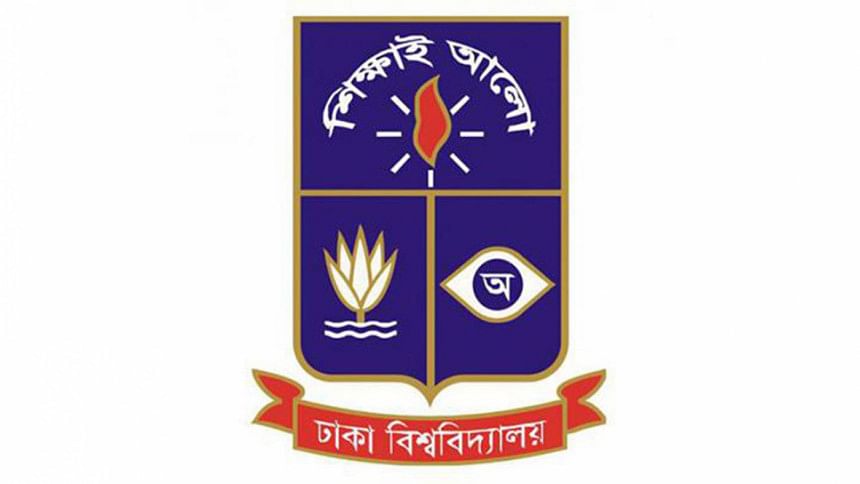VC appointment: Clause 11(2), a bane for DU autonomy

Since the country's independence, successive governments have dishonoured a clause of the law regarding the appointment of vice-chancellors at Dhaka University, ultimately undermining the institution's autonomy.
The university is run under the Dhaka University Order 1973, and its clause 11 (1) stipulates that a VC will be appointed for four years by the chancellor, who will pick one from three individuals elected by the university senate – the highest decision-making body of the institution.
However, the governments have ignored the clause and temporarily appointed all VCs, except three, since 1976 -- the year the VC was appointed through the panel election for the first time.
Some temporarily appointed VCs then convened the senate meeting to hold the VC panel election and subsequently got elected.
In most of the appointments, the governments cited clause 11 (2) of the 1973 order -- "Where any temporary vacancy in the office of the Vice-Chancellor occurs by reason of leave, illness, resignation or any other cause, the Chancellor shall make such arrangements for carrying on duties of the office of the Vice Chancellor as he may think fit."
Interestingly, documents show no temporary vacancy was created before most of the VC appointments.
The latest selection of Prof ASM Maksud Kamal as the VC is no exception as President Mohammed Shahabuddin appointed him temporarily.
With Prof Maksud, 11 of 14 VCs were appointed in a similar manner. Only three were elected from the panel nominated by the senate.
Of the 11, seven convened senate meetings to hold the VC panel election after being temporarily appointed by the government.
The remaining four could not call the senate meeting as they were either removed or had resigned months after their appointments.
Educationists say that ignoring the senate panel elections while appointing VCs undermines the spirit of DU's autonomy, which its teachers and students earned through a mass movement in 1969.
They said it has become a custom that any teacher loyal to or affiliated with the ruling party gets appointed as VC.
VCs do not want the panel elections to be held until a green signal is given from the government, they said.
"Clause 11 (2) should be applied only in emergency situations -- the incumbent VC's leave, illness or resignation, or any state emergency. Otherwise, holding the VC panel election to elect VCs should be the regular practice," Abul Kashem Fazlul Haque, a former professor of DU's Bangla department, told The Daily Star.
He said this practice was initiated by the autocratic government and carried forward by the successive democratic governments.
"If a VC is appointed by the government in this way, he or she runs the university as per the government's will."
Prof Nazrul Islam, former chairman of University Grants Commission, said it has now turned into a "bad trend".
"It's a violation of the 1973 order. Unfortunately, the trend has been going on for a long time though it wasn't supposed to."
PAST VC APPOINTMENTS
The DU Order 1973 was proclaimed on February 15, 1973, with the aim to change the university's administrative system and through it, the senate was established.
The VC appointment procedure stipulated that the senate will elect a panel of three candidates, from which one will be appointed as VC by the chancellor. The participation of teachers and graduate representatives was ensured through the elections.
After the country's independence, two VCs were appointed directly -- the first VC was Prof Fazlul Halim Chowdhury, who was elected on February 2, 1976, according to DU documents.
He, however, resigned from his position protesting the army's entry into the campus during the Ershad rule in 1983.
Later, the then Pro-Vice Chancellor Prof AKM Siddiq took charge and convened the VC panel election within the next five months.
In that panel, Prof Siddiq, Prof Serajul Islam Choudhury and Prof Shamsul Huq were elected as candidates.
The then President HM Ershad chose Prof Shamsul Huq, who was third on the list, as the VC.
But Prof Shamsul Huq was unable to complete his four-year tenure and resigned on January 12, 1986, as he felt helpless in having to follow Ershad's undue orders, sources said.
The same day, Ershad appointed Prof Abdul Mannan, who later convened the senate election and became the VC.
"This created a new tradition -- getting appointment from the government first and then elected in the senate," said a professor emeritus, preferring anonymity.
Since 1976, the university got only three VCs from direct senate elections. They are Prof Fazlul Halim Chowdhury in 1976, Prof Shamsul Huq in 1983, and Prof AK Azad Chowdhury in 1996, according to the university's documents.
All the VCs were appointed first by the government. Of the eight VCs who were later elected by the senate, four were not able to complete their tenure as they resigned or were removed due to the change in government, documents showed.
They are Prof Shamsul Huq, Maniruzzaman Miah, Emajuddin Ahmed and Anwarullah Chowdhury.
In 2009, the Awami League-led government appointed Prof AAMS Arefin Siddique as a temporary VC. He held the post for four and a half years without being elected till the senate elected him later in 2013.
The outgoing VC, Prof Md Akhtaruzzaman, was appointed in September 2017 but was elected by the senate two years later.
Currently, the senate has 103 members out of 105 seats, which is a record in the university's history.
Former DU VC SMA Faiz said the VCs, in most cases, held panel elections after their appointment.
"To me it is like partially bypassing the 1973 order and partially honouring it," he said, adding that the order should be followed properly unless there is an "impending necessity".
About why he is not convening panel elections with his tenure ending on November 3, Prof Akhtaruzzaman said the situation was not favourable to hold a senate session.
"This has been a tradition for quite a long time," he said, declining to elaborate any further.
A dean wishing anonymity said Prof Akhtaruzzaman did not convene the senate meeting as he feared he might not be elected again because of controversies during his tenure.
"He tried to get reappointed by the government, but failed to manage it."

 For all latest news, follow The Daily Star's Google News channel.
For all latest news, follow The Daily Star's Google News channel. 



Comments